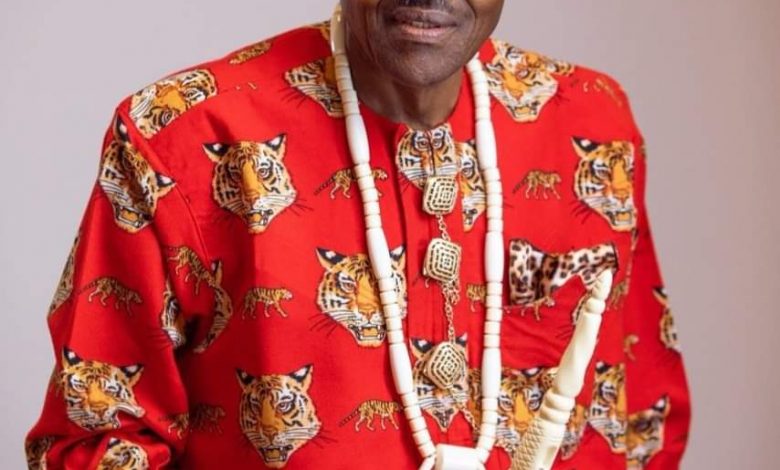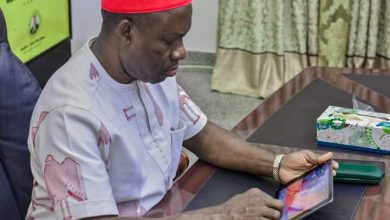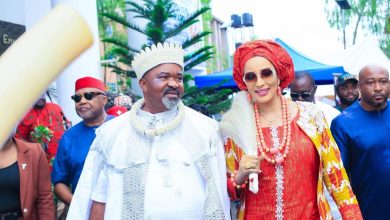
BY TONY OKAFOR
Nigeria, again, wears black. Not from fashion trends, but in mourning.
Former President Muhammadu Buhari has passed on at the age of 82, in London—his medical safe haven of choice—the city where many of his check-ups took place while Nigerians queued at hospitals with no light and no drugs.
The federal government, in its usual ceremonial fashion, has declared seven days of national mourning. Flags are flying at half-mast, and the air is thick with tributes—some sincere, others sanitised. But behind the official grief lies a complicated story that cannot be buried with the man.
Let it be clear: no death should be celebrated, no matter how controversial the life. Even the most bruising chapters of our national history deserve sober reflection, not dancing on graves.
Death is not a scoreboard. It is a silence that equalizes presidents and peasants. So while many Nigerians still carry scars from Buhari’s time in office, we must resist the urge to throw jabs at a coffin. That said, we must also not romanticise a legacy that left millions burned.
Buhari did, indeed, pepper Nigerians— in fact, with the kind of pepper we call Nsukka pepper in our parts—the type that invades your eyes and nostrils and makes it hard to breathe.
Under his administration, life became a daily survival exercise. From fuel queues that wrapped around cities like carnival processions to food inflation that turned yam into a luxury item, Buhari’s governance left many Nigerians clutching empty wallets and empty stomachs.
He came in 2015 with the promise of change. And change did come—but not quite in the direction many expected.
The economy sank, and the naira developed diving skills. Corruption was tackled selectively; friends of power got perfume, enemies got prison.
Under his watch, insecurity festered like an untreated wound. From Boko Haram to bandits to unknown gunmen, the country became a theatre of bloodshed.
Whole regions became ghost towns. Schools turned into hunting grounds for kidnappers. Communities, especially in the South-East, Middle Belt and North West, became headlines for the wrong reasons.
Yet, Buhari was not without virtue. He lived a life of relative personal austerity—a sharp contrast to the champagne lifestyle of many Nigerian politicians.
He didn’t chase contracts or throw wild parties. He had convictions—some would say stubbornness—and he genuinely wanted to leave the country better than he met it, even if his methods often missed the mark.
Infrastructure saw some gains under his watch. Roads, bridges—such as the long-awaited Second Niger Bridge—and rail lines received attention. His agricultural push was not without merit, even if insecurity made farming feel like a suicide mission.
But for every rail line laid, there were a dozen economic wounds bleeding. For every speech on patriotism, there were silences on injustice.
He often communicated with the urgency of a tortoise and the warmth of a wall.
During moments of national crisis, he was absent, distant, or dismissive. His tribal and regional biases showed in appointments and policies, and his presidency alienated as much as it tried to unify.
Now that he is gone, tributes are pouring in—from friends, foes, and fence-sitters. It is only natural. Nigerians are a deeply respectful people, even when history demands confrontation.
But as we lower the flags, we must raise our standards. Buhari may have peppered us, but let no more pepper come. Let his time serve as a warning, not a blueprint.
Nigeria cannot continue to recycle pain as policy. We have mourned too many leaders whose legacies leave us with more questions than pride.
In the end, Buhari has joined the ancestors. His journey on earth is over, and it is left to history—and perhaps God—to judge him fully. But while we pray for his soul to rest, we must work for a nation where the living can finally breathe.
No more pepper, please.
This pot of soup called Nigeria is already too hot to swallow.
Sai Baba. Adieu.




